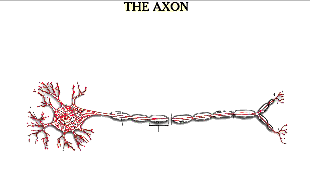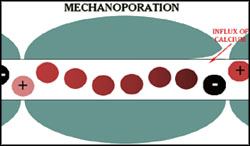Delayed Effects After TBI
Both Immediate Cell Death and Delayed Cell Death Can Occur as a Result of the Traumatic Brain Injury Event

Ionic changes at the cellular level may be one of the primary causes of brain damage, especially that which occurs as a result of acceleration/deceleration forces, particularly involving Diffuse Axonal Injury (DAI). Most brain damage doesn’t occur immediately. There may be delayed effects after TBI. Brain damage involves more than the event of trauma, but also the process of this intracellular stress and toxicity. While the ionic fluctuations that cause this cell death begin at the moment of trauma, they may continue for days thereafter.
Mechanoporation is the term for the defect in the myelin sheath which occurs at the moment of trauma, that allows calcium to invade the beneath the myelin, causing toxicity.

With the delayed effects after TBI the diagnosis of brain injury may be missed. Emergency room personnel are the first people to see an accident victim and usually are the ones to diagnose or access the damage to the patient. If there isn’t any obvious trauma to the head they probably would not consider brain injury. They would have no way of knowing that the patient had experienced acceleration/deceleration forces that could cause traumatic brain injury. And because the cells are dying slowly the patient may appear without any cognitive defects initially. As time goes on the patient may develop signs such as anmesia, confusion, and/or anger issues and caused by the delayed effects of TBI. If the medical personnel recognize these signs they may realize that the patient is suffering brain injury. A lot of the time they don’t realize it and the brain injury goes un-diagnosed.
Source:(Greenfield’s Neuropathology, © 1996, Arnold, page 208.)

